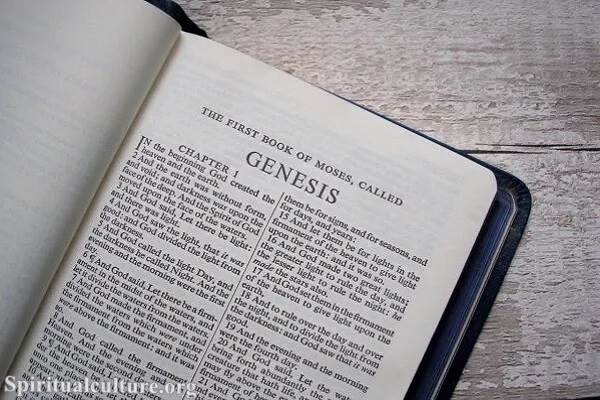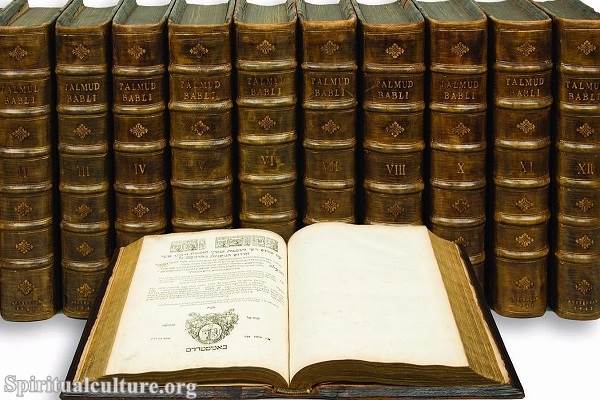The soul of a people is often etched not only in their songs and stories, but in their laws—the way they walk, work, eat, rest, love, grieve, and seek the divine. For Judaism, this sacred walk is called Halakha. Far more than a set of rules, Halakha is a path, a practice, a rhythm of life shaped by centuries of interpretation, commitment, and reverence.
As “Spiritual Culture,” we invite you to explore what Halakha truly means—not merely as an ancient legal code, but as a living spiritual framework that speaks to ethics, identity, and holiness in the everyday. This article will guide you through its origins, scope, principles, and continued significance in the lives of Jews today.
What Does “Halakha” Mean?
The word Halakha (הלכה) comes from the Hebrew root “halakh”, meaning “to walk” or “to go.” It refers to the way one walks in accordance with God’s will.
Halakha is the totality of Jewish law and ethical teaching as derived from the Torah, expanded in the Talmud, and interpreted by generations of rabbinic authorities. It is a system of divine instruction on how to live a holy life—covering everything from prayer and festivals to business ethics, diet, sexuality, and mourning.
More Than Law: A Way of Life
To call Halakha simply “law” is too narrow. It is more like a spiritual choreography—a way to move through life with mindfulness, discipline, and sacred intention.
As the Talmud says,
“Great is study, for it leads to action.” — Kiddushin 40b
In this light, Halakha is the bridge between knowing and doing, between divine revelation and daily life.
Origins: From Sinai to the Sages
The Biblical Foundation
Halakha is rooted in the Written Torah (especially the first five books of Moses) which contains 613 commandments, or mitzvot. These include well-known directives like:
- “Honor your father and mother.” (Exodus 20:12)
- “You shall not steal.” (Exodus 20:15)
- “Remember the Sabbath day and keep it holy.” (Exodus 20:8)
Yet even these commands required interpretation. What counts as “work” on the Sabbath? What does it mean to “honor” a parent? These questions gave rise to a rich tradition of oral explanation.
The Oral Torah
According to rabbinic tradition, alongside the written commandments given at Mount Sinai, Moses received an oral law—a detailed explanation of how to apply God’s will in daily life. This oral law was eventually recorded in two major texts:
- The Mishnah (ca. 200 CE) – a compact legal code of Jewish law
- The Talmud (completed ca. 500 CE) – a vast commentary and debate over the Mishnah, with two versions:
- The Babylonian Talmud (more authoritative in most Jewish communities)
- The Jerusalem Talmud
Together, these texts form the foundation of Halakhic reasoning, continuing a living dialogue on how Jews are to live in faithful obedience.
The Scope of Halakha: Sacred Structure for Daily Life
Halakha reaches into nearly every part of life, including:
1. Ritual Practice
- Prayer: How and when to pray, the structure of daily blessings
- Shabbat: Prohibited labors, lighting candles, joyful rest
- Kashrut: Dietary laws, including what foods are permitted (kosher)
- Holidays: Observances for Passover, Yom Kippur, Sukkot, etc.
2. Ethical Behavior
- Business dealings: Honesty, fair trade, avoiding exploitation
- Speech: Prohibitions against gossip (lashon hara)
- Charity (Tzedakah): Obligations to help the poor
3. Personal Status and Family Life
- Marriage and Divorce: Contracts (ketubah), purity laws
- Conversion to Judaism: Requirements for joining the Jewish people
- Mourning rituals: The structure of shiva, burial practices
Halakha functions not as a separate legal system from spirituality—but as spirituality expressed in the details of life.
Halakhic Authority: Who Decides?
The Role of Rabbis
Since the destruction of the Second Temple (70 CE), rabbinic authorities have guided Jewish communities in interpreting and applying Halakha. Rabbis function as legal scholars, spiritual leaders, and ethical teachers.
Major figures in Halakhic tradition include:
- Rabbi Akiva and early sages of the Mishnah
- Rav and Shmuel, founders of Talmudic academies
- Maimonides (Rambam) – author of the Mishneh Torah, a systematic code of law
- Joseph Caro – compiler of the Shulchan Aruch, the most widely accepted code of Jewish law
Responsa Literature
Over centuries, rabbis responded to specific legal or ethical questions through responsa (she’elot u-teshuvot), providing detailed answers rooted in Talmudic sources. These texts allow Halakha to evolve while remaining faithful to tradition.
Diversity Within Unity: Halakha Across Jewish Denominations
1. Orthodox Judaism
Orthodox Jews see Halakha as binding and immutable, derived directly from divine revelation. They uphold a strict adherence to traditional interpretations and maintain that rabbinic authority is not optional but essential.
2. Conservative Judaism
Conservative Judaism accepts Halakha as authoritative but also recognizes the need for adaptation and historical context. Changes are made cautiously, often through scholarly consensus.
3. Reform and Reconstructionist Judaism
These movements do not consider Halakha binding in the traditional sense. Instead, they see Jewish law as a spiritual resource—valuable for meaning and identity, but not obligatory.
4. Karaite Judaism
A minority movement that rejects the Oral Torah and follows only the literal text of the Hebrew Bible. Their observances differ significantly from Rabbinic Judaism.
Halakha in Modern Times: Relevance and Renewal
In the modern world, Halakha continues to evolve. New questions arise constantly:
- Can one use electricity on the Sabbath?
- What constitutes ethical investing?
- How should Jews relate to modern medicine, such as organ donation or IVF?
Applying Ancient Wisdom to New Realities
Modern Halakhic authorities wrestle with these challenges, striving to apply eternal principles to contemporary life. While some debates are divisive, others have led to creative renewals in observance and community life.
As the prophet Micah reminds us:
“He has told you, O man, what is good—
and what the Lord requires of you:
to do justice, love mercy,
and walk humbly with your God.” — Micah 6:8
A Spiritual Frame: Why Halakha Matters
At its heart, Halakha is not just about legal precision—it’s about spiritual alignment.
- Halakha sanctifies time: through Shabbat and holidays
- It blesses the body: through mindful eating and purity laws
- It shapes character: through honesty, humility, and community care
- It draws the mundane into the sacred: transforming eating, dressing, speaking, and even business into acts of devotion
As Jewish mysticism teaches, every commandment (mitzvah) is a channel of divine light—a way to connect heaven and earth.
Reflect and Reimagine: What This Means for You
Whether you are Jewish or not, religious or spiritual, Halakha invites deep reflection:
- What does it mean to live by a sacred rhythm?
- How do daily choices reflect one’s values and relationship with the divine?
- Can law be not just a restraint, but a path to freedom and flourishing?
Halakha shows us that holiness is not confined to temples or mountaintops—it is found in how we speak, eat, work, rest, and relate to others.
It is the sacred art of walking—not running—through life, step by mindful step, toward the Divine.
Spiritual Culture gently invites you to explore this ancient path with fresh eyes, honoring its wisdom, and perhaps finding in it echoes of your own longing to walk meaningfully in the world.
If this stirred your curiosity, explore more on sacred rhythms in Judaism or dive into how other traditions shape daily life through divine practice.



